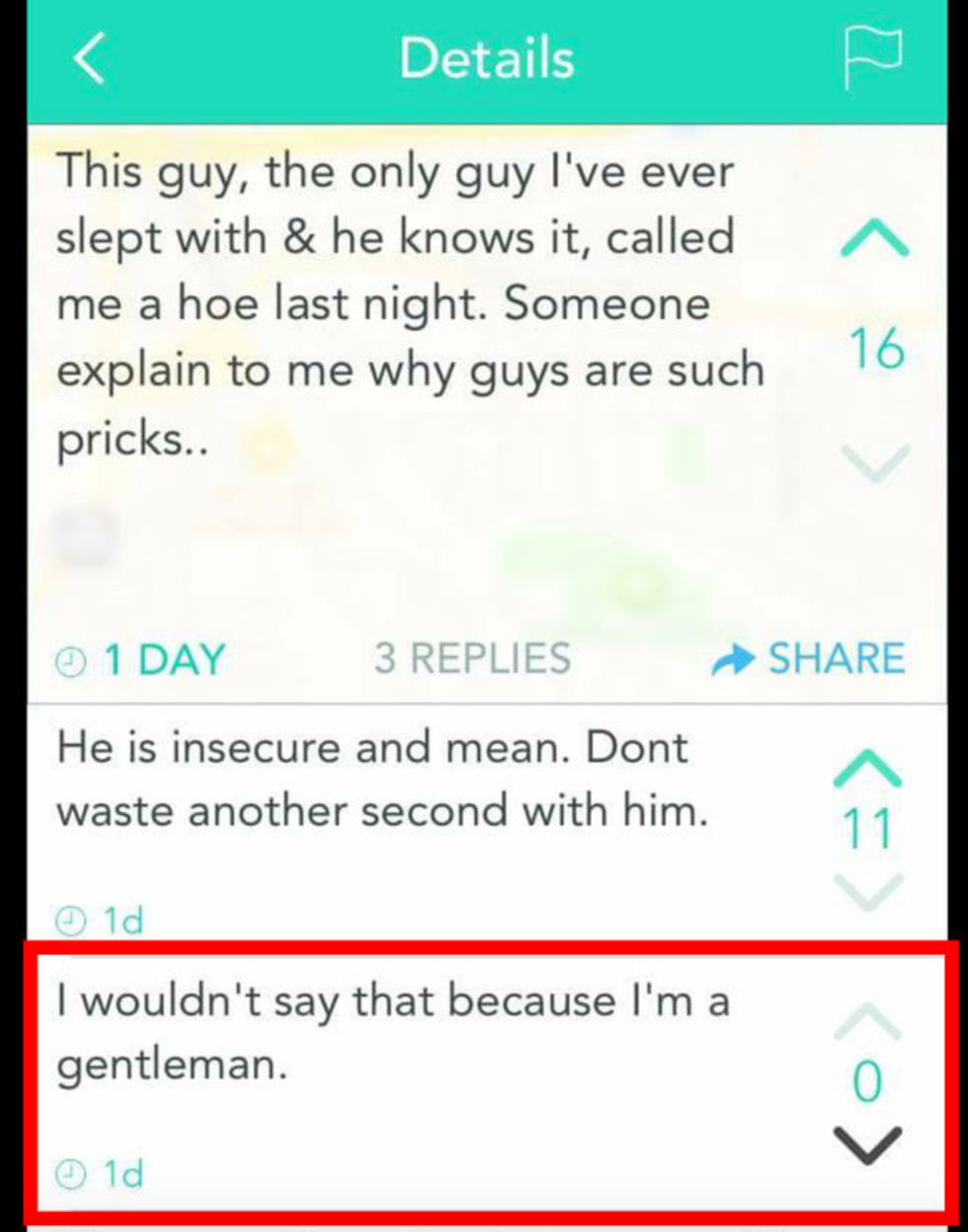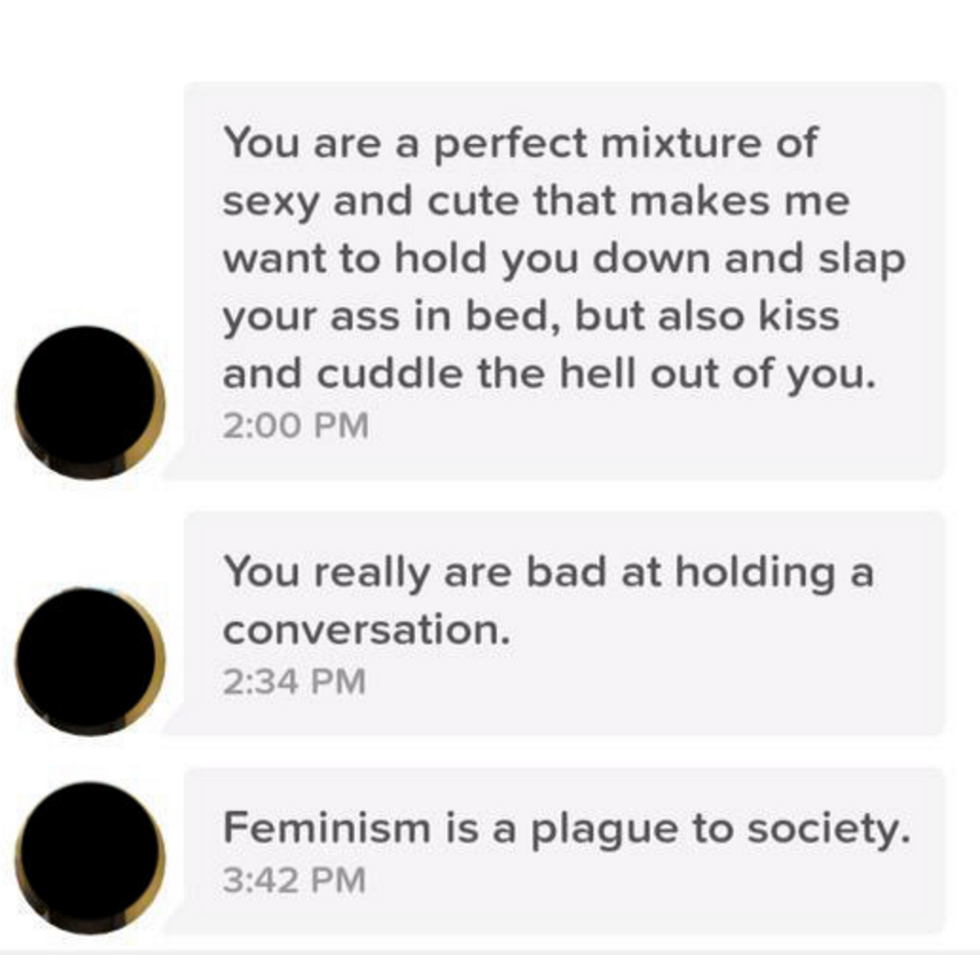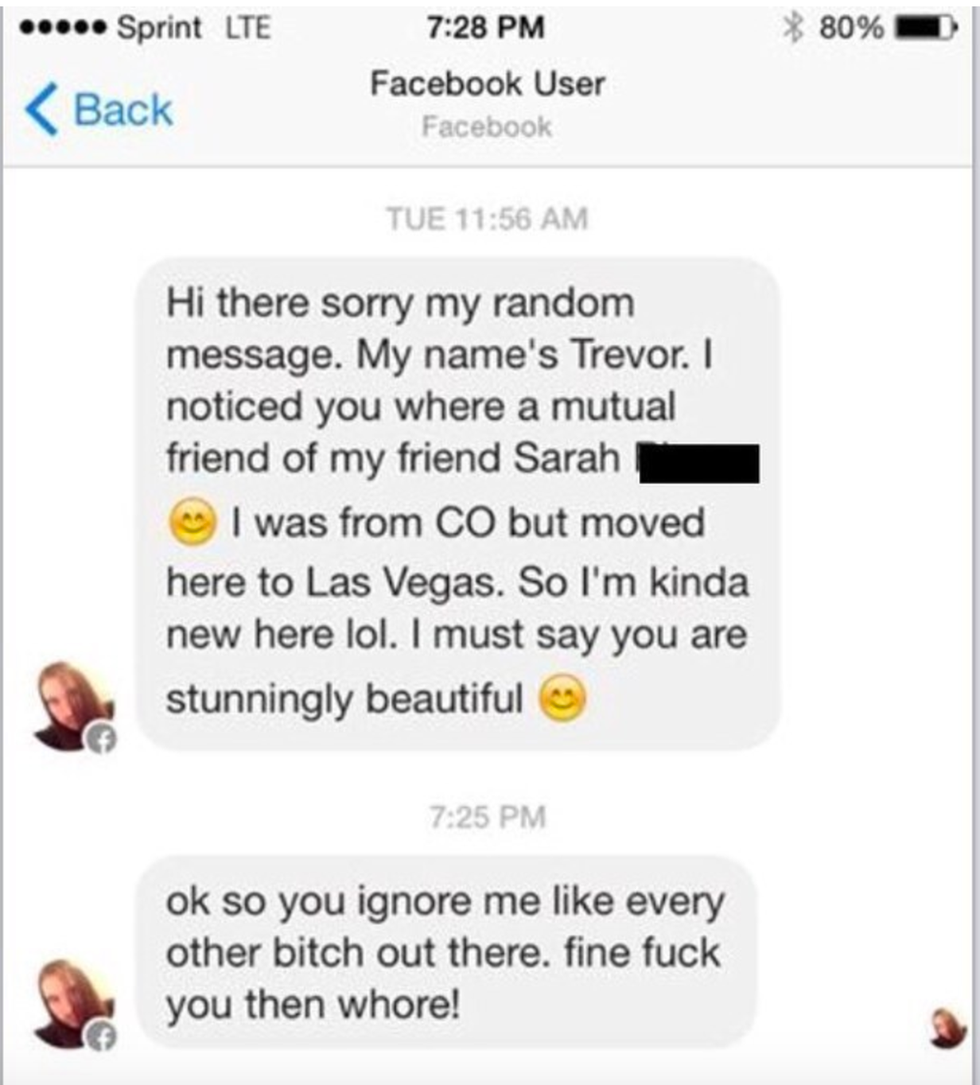I’m sure everyone knows one. Whether he’s your longtime friend, or a guy who might like your Instagram every so often, he’s out there, and ready to make a move at moment’s notice: The “Nice Guy.”
That doesn’t sound so bad, right? After all, “Nice Guy” isn’t a sarcastic title, or an ironic moniker -- he truly is nice. He might bring you chocolate if you’re upset, or listen to you complain about your relationship problems. He’s always there to drop you a compliment, and god forbid if your significant other should screw up in some way, he would never commit whatever atrocity they did. Everything he does is sweet, well-meaning, and probably makes your life better in some way. And most importantly, he’s a great friend. It means a lot to you to have him by your side, and you cherish the friendship, as does he. Or does he?
Hiding behind the masquerade of friendship, it turns out that the Nice Guy actually expects something in return for everything he does. No, not emotional support, or a shoulder to cry on, as expected in most friendships. In exchange for everything he does (which, ultimately, is merely being a decent person), the Nice Guy expects a relationship. Or at least sex.
He manipulates your kindness and genuineness into a scapegoat for his corrupt intentions. You were “leading him on,” or putting him in the dreaded friendzone. When you don’t express a romantic sentiment, or any physical one, you’re the bad guy; in fact, you’re denying him what he is entitled to as a well-meaning agent of patriarchy. He’s the inspiration behind countless movie troupes, where the dorky looking guy gets the supermodel female lead. Sure, encouraging people to see beyond the superficial aspects and date “below their league” is important. But why is it such a one-sided phenomenon? As soon as I see a solid ten out of ten guy on the arm of some conventionally unnatractive woman touted by the media as the standard that one ought to aspire to, then I might be tempted to lend some credence to this phenomenon. Unfortunately, it’s sexist as is, and examined through a feminist lens where it becomes clear female autonomy is subordinated, fails to hold weight.
The exploitative underpinnings of the concept of the friendzone are not uncommon to any teenage girl. We are taught that men expect something in return for their kindness, and not performing is seen as deviant and prude. This message that we send to young is adulterated with entitlement, and extends beyond the scope of a “Nice Guy” interaction in a vacuum. When women cannot even have male friends without feeling oppressed by their sexuality, we’ve truly succumbed to misogyny and hegemonic masculinity.
Yet while these micro-level interactions certainly remain salient, and the slut/prude dichotomy along with the precarious friendzone dynamic appear here to stay, we see less of this culture represented in the media. Instead of the classic, overdone ugly-man beautiful-woman troupe, where obviously the guy gets the girl because there can’t be a happy ending without romance, we’re seeing strong female heroines who might not even care about men. Jane Villanueva, protagonist of Jane the Virgin, juggles her very (very) attractive baby daddy Rafael with her longtime sweetheart Michael (he’s a detective, which is pretty cool) throughout the first two seasons of the show. Yes, the show does follow a typical guy-chase-girl story arc; however, in contrast to the norm, Jane’s choice and free will lies at the crux of the plot. Similarly, in shows like Scandal, where a bulk of the plot is a romantic interaction between two characters, Olivia Pope’s identity develops independently of her beau’s, and makes it clear he is not entitled to her, regardless of how powerful or attractive he is. I believe her exact words are, “If you want me, earn me.” The list goes on and on, but the point is, female protagonists are emerging to the forefront of romantic comedies, this time with free will and choice, and it’s altering the paradigm.
Pop culture is a microcosm of our society, signaling important norms and what’s acceptable. Sexism and male entitlement is still rampant; however, we’re seeing less of the “Nice Guy” persona make its way around social media, at least, as long as the alt-right isn’t involved. The overall cultural message that women have free choice, regardless of their appearance, has become much more resounding, and will hopefully continue to gain traction. The Nice Guy still exists and is still very much a prominent part of dating culture, but his actions have begun being called out by feminists across the globe. At the very least, the culture he has created is being unwoven.























